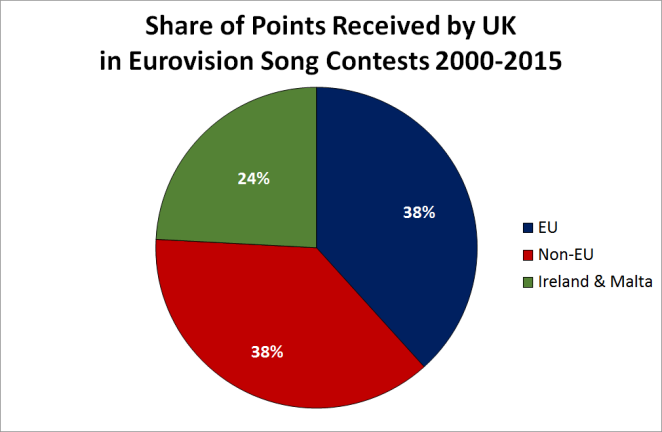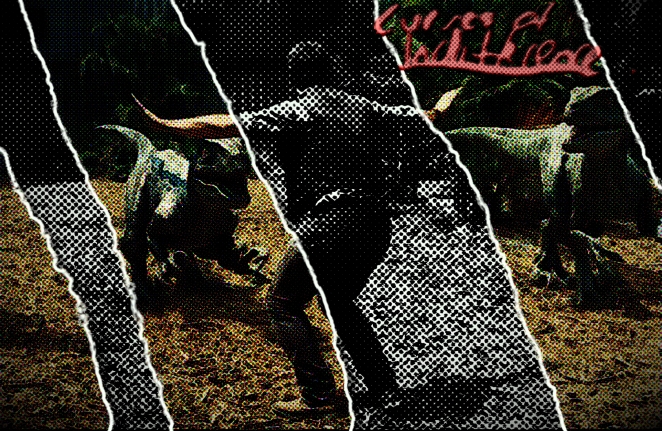This blogpost is nothing but a major over-analysis of an insignificant issue I witness from time to time that drives me absolutely insane. For thought-provoking discussion, browse elsewhere.
When I’m at my family home in the very centre of the Republic of Ireland, I do very little apart from take advantage of the luxuries of my parent’s house, and the multitude of free food available in the kitchen. If I’m there for more than a day or two however, I gain the motivation for exercise, and the best way to do this is to just go for a gentle run around the surrounding area. To many people reading this, this activity might sound amazing: a gentle run through unspoiled, untouristic central Ireland. To me, I grew up in this setting, so views and colours like this and this don’t do much for me. And yes, if you clicked on the links in the previous sentence, those are google street view screenshots from the exact route I run. You might be able to tell that I am not too fond of the activity, and the reason why is the subject of this very blog post you’re reading. As well as the overly-familiar (yet objectively magnificent) scenery, there is an issue, a riddle, an annoyance that occurs on basically all these runs that has bothered me for years.

There is a 1.5km long section of my running route that is completely straight, where there is perfect visibility from start to end, consisting of a standard road with two driving lanes, one for left hand side driving and one for right hand side driving. If you require more scene-setting, then please check out the actual thing on google street view here. It is in the middle of the countryside, so there is obviously no footpath, and therefore people have to walk/run on the actual road. In Irish road rules, the etiquette is that a pedestrian/jogger, in the absence of a footpath, will walk/run on the opposite side of the road than he/she would if driving a vehicle (ie, you walk/run into oncoming traffic. To people raised in cities, this may seem illogical, but on these roads there is so little traffic that it makes sense).
So since this is a large straight section of the road, there is plenty of visibility as to whether a car is coming or not. When I see a car coming towards me, I have perhaps 30-60 seconds before it gets to me and must manoeuvre around me (since I am on “it’s” side of the road). As I have so much time, I always look behind me to see if there is a car coming the other direction, in the off chance that there might not be enough room for the three of us to coexist on the same road space. If there is another car coming, and again I must stress here that this not only a road with high visibility but also not an especially small road, I would (while still running) go as far into the ditch as physically possible so as to limit my obstruction to the traffic. This never mattered, however, as in my experience, no matter the starting positions of the cars on this stretch of road, or the speed, they would always intersect (extremely slowly), at precisely one point: me.
What I’m saying is that in my experience, if there are cars coming in both directions, at any point in this stretch of road, they will slow down to an absolute crawl and pass each other at exactly the point where I currently am. This phenomenon has ruined every run I have ever had in central Ireland, and bothers me to this day whenever I think about it. The crudely drawn gif below animates my fury.

Of course I understand the reasons why this phenomenon occurs: firstly, the driver on my side of the road will obviously be more cautious when he/she sees that there is an upcoming obstruction in his/her path and will begin decelerating and driving more cautiously as he/she gets closer. For the other driver (approaching from behind), he/she has ample visibility of the situation ahead, and feels he/she could also help out a bit by decelerating him/herself, and providing room for the opposite vehicle to overtake me. The other driver on my side may now look to the other driver on the other side of the road and decide to wait until he/she passes me by first before overtaking me. This all leads to an excruciatingly incremental circle of deceleration that results in my solitary country run being ruined by two cars passing me by at 5kmph while I am being stung by nettles on the unkempt countryside ditch.
Another reason why I get so annoyed by this phenomenon is probably that I notice every single time it occurs, while don’t pay any attention at all when the situation goes by in any other way. It’s called confirmation bias, where each new instance of this exact event just adds to my conviction that I’m right, but with a complete disregard for opposing evidence. It’s similar to that thing that happens when you hear a new word or phrase that you didn’t know before: within a day or two you will hear it everywhere. It isn’t a coincidence, nor is it a pattern. It was always there, you’re just more attuned and looking out for it now.
Perhaps (ie, definitely) the reason I pay so much attention to this phenomenon is that it is completely and perfectly ungoogleable. We live in an age where we can research anything we want, yet this thing that annoyed me so much was so abstract (and petty), that it is absolutely impossible to google. When we encounter something that cannot be investigated and confirmed immediately, this can be very frustrating. It took me a few hundred words to describe here what I am talking about, and all I can call it is this ‘phenomenon’. I would need to be way better at geometry to be able to describe what I have discussed above any better. While thinking about writing this blogpost, the most succinct definition I could come up with was
“When two objects travelling along a finite linear plane are approaching a slower moving (yet still parallel) object from opposite directions, the faster moving objects will always pass by each other at the location of the slower moving object”.
I was never great at dynamic equations so I apologise to any mathematicians out there who are offended about such things. The point is however, that I don’t really have the language to describe what exactly occurs in the situation I’m describing on my runs in Ireland, and if anyone reading this does, then please let me know how to research it more in depth, since it is a situation that I encounter quite often in life outside central Ireland too. Like when I’m on a bike and there’s a pedestrian in the bike lane, and there’s a cyclist coming in the other direction. Guess where we cross paths? To be clear: in this situation the pedestrian is the asshole, but in the original running story, it’s the car drivers who are the assholes.
Now, I’m not saying that this ungoogleable phenomenon is a scientific law or anything: it obviously doesn’t happen all the time. Yet still, I think you would have to admit, after reading a 1000+ word rant on the subject, that it exists. If it exists, it deserves a name, and I am extremely sure that it doesn’t have a name, as no one has felt the need to articulate such a petty and negligible phenomenon thus far in human existence. We need a name for that rare, yet noticeable, occurrence where two fast moving objects moving at straight lines in different directions change their speed due to the presence of a slower moving object, resulting in the intersection of all three objects at the same point in a linear plane! We need this, if only so that when it occurs, we can post on twitter or facebook that it occurred, and not have to spend a few hundred words doing so. In the interest of public service, I suggest “Cian’s Conundrum”, “Mulligan’s Law” or “The Mulligan Effect”.


























